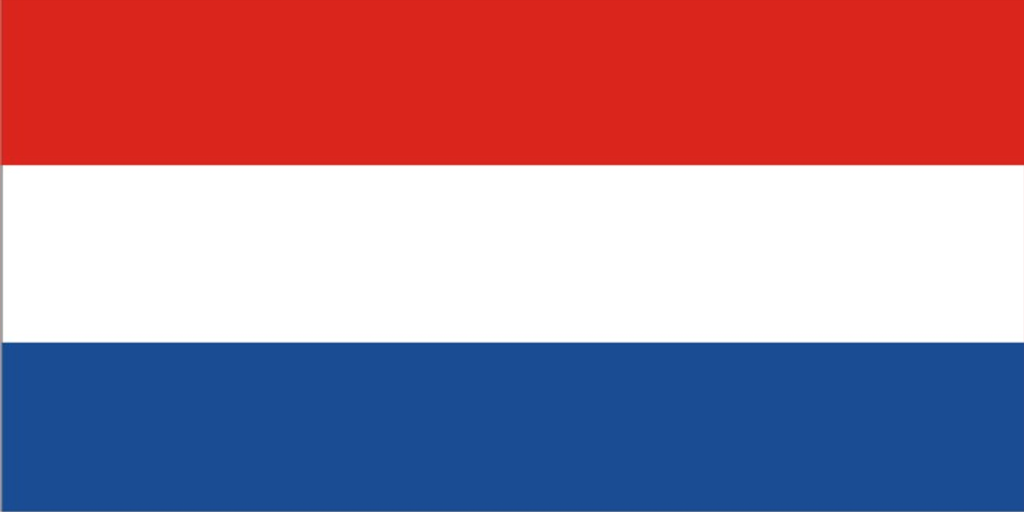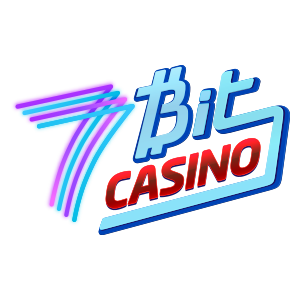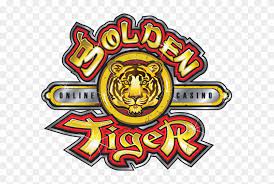
Netherland Gambling Regulations
Table of contents
Gambling Regulations for Online Casinos in the Netherlands
Although the Netherlands has long been a haven for vices, it has actually had a pretty conservative view on gambling. For many years, the Netherlands has maintained tight control over betting, both online and in-person.
As of 2021, however, that’s all about to change. Thanks to a new law passed in 2019, the Netherlands is about to join much of the rest of the European Union in expanding its gambling options, particularly online. So, with that in mind, let’s take a closer look at gambling regulations for the Netherlands
A Brief History of Online Gambling in the Netherlands
As with some other European nations, the Netherlands has held a strict monopoly on betting and games of chance. Pre 1970s gambling history is pretty spotty, though, although there are records of betting licenses being approved by the government as far back as the 14th century.
In 1726, the first state-run lottery was founded, which was one of the first documented lotteries in the whole world. It was initially called the Dutch Generality Lottery but changed its name to the Dutch State Lottery in 1848.
When it comes to land-based casinos, there is only one company authorized in the whole country – Holland Casino. This enterprise received its gaming license in 1975, which it would hold for an indefinite amount of time.
While there are 14 genuine casinos in the Netherlands, they are all owned and operated by Holland Casino. The government wanted to maintain its monopoly so that it could rake in all of that sweet tax revenue and profits.
For all of the 20th century, the only form of gambling allowed in the Netherlands was land-based gaming. Outside of Holland Casino’s casinos, players could partake in gaming machines and bingo, which were legalized in various businesses. Currently, there are over 200 betting parlors with different lottery, sports betting, and slot machine games.
When it comes to online gambling, the government has had a rough time figuring out how to control the market. In 2006, Holland Casino was able to extend its reach online but was shut down only a year later.
In 2012, the government sought to curb illegal offshore gambling with an amendment to the original Betting and Gambling Act of 1964. The idea was to force banks to avoid processing transactions with foreign casino operators. Predictably, the banks refused, meaning that the law had no teeth.
Sports betting and horse betting have been available online since then, however, thanks to the two entities that control those markets. De Lotto runs all sports betting, while Scientific Games Racing B.V. runs parimutuel horse racing. Even before the new Remote Gambling Act went into force, these companies offered online wagering.
Since Dutch players have routinely skirted the government’s monopoly and limited legal online betting options, the Dutch have shifted course entirely. As of March 2021, the Remote Gaming Act is in force, allowing foreign operators to get licensed within the country. Given that the Netherlands is such a valuable gambling market, the online industry is poised to explode in the next few years.
Here are some important dates in the history of gambling in the Netherlands.
- 1726 – The Dutch Generality Lottery is the first state-run lottery created to raise funds. It’s also one of the first lotteries in the world.
- 1848 – The DGL changes its name to the Dutch State Lottery.
- 1964 – The Betting and Gaming Act is passed, which allows the government to create a monopoly on casinos and gambling. One provision of the act forces operators to use half of their profits for the public good.
- 1976 – Holland Casino opens its first location in Zandvoort.
- 1992 – The Netherlands Gaming Authority (NGA) is formed to enforce the Betting and Gaming Act rules. This year the SENS is also created to run the state lotteries.
- 2006 – Holland Casino is approved for an online casino, which is shut down in 2007.
- 2012 – Updates to the Betting and Gaming Act are implemented to try and curb offshore betting at unlicensed online casinos. The enforcement doesn’t go as planned.
- 2019 – The Remote Gaming Act is passed, which will go into effect as of March 2021. The act allows foreign online casinos to get licensed in the Netherlands for the first time.
Is Online Gambling Legal in the Netherlands?
As of March 2021, yes, all online gambling is legal at licensed websites. At the time of this writing, few operators have gone through the licensing process, but the market is poised to expand exponentially in the coming months and years. Officially licensed sites won’t go live until September 2021, however.
Even before March 2021, online gambling was technically legal for players. Sports betting and parimutuel horse races had been legal online since the 2010s, thanks to De Lotto and Scientific Games Racing B.V.
As far as online casinos, Dutch residents would routinely play at offshore sites with little to no government prosecution. Even though the authorities tried to shut down unlicensed online betting in 2012 and 2013, they didn’t make much headway.
So, with the new law, the Netherlands is now a white market, where online gambling is fully legalized and regulated. As more operators get licensed within the country, it will be interesting to see how the industry changes and whether the government will get cold feet or go all-in on the new legislation.
Gambling Regulations for Online Casinos Netherlands
Since the new Remote Gaming Act is still coming into fruition, it may encounter pitfalls and amendments in the coming months and years. However, because this law is the most pertinent for online casinos, we’ll dive into how it works and its effects on the marketplace.
What Defines “Gambling?”
The Betting and Gambling Act of 1964 set the standard for games of chance. Those same standards will still be in place with the Remote Gaming Act; only now they will extend to online offerings as well as land-based betting.
According to the original BGA, games of chance are situations where players can win a prize or premium based on probability or odds, not their own influence. Essentially, if there is any luck involved, the BGA defines it as gambling. Games of skill are not as tightly regulated, although poker seems to fall into the “luck” category.
Prioritization of Licensed Sites
Before the RGA came into law, all online casinos were unlicensed within the country. As operators apply for and get approved post-RGA, the Dutch government will prioritize legal casinos over illegal ones.
The same enforcement rules of the old Betting and Gambling Act will still apply to unlicensed websites. According to the Netherlands Gaming Authority, they seek to ban or impose steep fines to illegal sites that have one of the following attributes:
- Dutch Language Options
- A Website URL Ending in .nl
- Any Ads Directed at Dutch Players
With the 2012 amendment, the NGA expanded its enforcement scope to target online casino operators who were trying to be clever. Some examples of these workarounds included:
- Websites that used Dutch language or culture in their name (for example, Clog Bingo)
- Ads that may not explicitly target the Netherlands but strongly implies the country with cultural details (i.e., windmills, tulips, etc.)
- No geo-blocking techniques. For the uninitiated, geo-blocking allows website operators to prevent visitors from a specific country or territory from accessing the site. If an online casino doesn’t use geo-blocking, it could get fined by the NGA.
- Payment methods favored by or exclusive to Dutch residents, such as iDEAL.
While licensed online casinos will now be able to advertise themselves in the Netherlands (as of September 2021), the government is still enforcing strict limitations. These restrictions aim to prevent excessive problem gambling within the country. Another objective of the law is to ensure that minors do not participate in any gaming activity.
Currently, ads are prohibited from venues and websites accessible to children, and there will likely be time limits on marketing materials to ensure that kids don’t see them.
Types of Online Gambling Licenses
The Remote Gaming Act divides licenses into four categories:
- Category 1: Casino games where players bet against the house.
- Category 2: Casino games where players bet against each other (pool betting).
- Category 3: Betting in relation to sporting events (non-horse-racing).
- Category 4: Betting in relation to horse racing (totalizator bets).
Unique Regulations From the RGA
One of the reasons the Netherlands has been hesitant to open the online gambling floodgates is that the government is highly concerned with player safety. As such, some provisions of the new act ensure all Dutch players can participate with confidence and without any unnecessary risk. Here is a rundown of these stipulations.
- Central Register – Casino operators must participate in a central registration system that monitors players by their Dutch social security number. The idea of registering is that a player can self-exclude from all sites simultaneously, rather than one by one.
- Age Check – Players have to verify their age using IDIN technology.
- Oversight and Monitoring – In addition to the player registry, operators have to allow the regional gambling authority access to their sites so that the government can monitor any suspicious behavior.
- Problem Gambling Prevention – All online casinos have to maintain a system of identifying and blocking problem gamblers.
- Player Behavior – Operators must use a software system to monitor a player’s behavior to ensure that they are not exploited.
- Payment Transactions – All payments must go through a “game-credit” system rather than directly deducting from a player’s bank account. Credits can never be negative, as that would imply a system of lending, which is prohibited.
- Location – All casino operators must be in a European Economic Area (EEA) country. Otherwise, the company must open a branch in the Netherlands to get approved.
Gambling Authorities for Online Casinos in the Netherlands
There is only one regulatory body in charge of licensing and monitoring all online casinos within the Netherlands. Its official name is the Kansspelautoriteit, but it goes by a few different names, including:
- Dutch Betting and Gaming Authority (DGBA)
- Netherlands Gaming Authority (NGA)
- KSA
These acronyms seem to be interchangeable since they all refer to the same agency. The NGA was established in 1992 and reorganized in 2012 to enforce the rules of the Betting and Gambling Act of 1964 as it applies to online operators.
Now that the Remote Gaming Act has come into play, the NGA is in charge of approving licenses for offshore sites and ensuring that they follow the new regulations. The three tenets of the NGA’s directive are:
- To inform consumers and protect them from criminal activity and exploitation.
- To prevent illegal and criminal enterprises from using online casinos and gambling websites.
- To prevent and manage gambling addiction.
As it was before the new law, the NGA focuses solely on gambling operators, not players. So, even as new online casinos become legal, Dutch gamblers can still play at unlicensed offshore sites. However, the danger of that is if they become victims of fraud, they have no legal recourse to recoup their losses.
That said, there are several high-quality gambling commissions within the EU, such as the UK Gambling Commission, the Alderney Gambling Commission, the Gibraltar Regulatory Authority, and the Malta Gaming Authority. Sites with these licenses are still required to uphold the standards of their respective regulatory commissions.
Gambling Addiction Resources in the Netherlands
Even though online gambling is being liberalized, the country has had resources for problem gamblers since the beginning. Here are some options for those who have a gambling addiction:
- Central Self-Exclusion Register (Cruks) – With the new law, all casinos (land-based and online) will have to participate in this registry. Cruks allows gamblers to self-exclude from all operations at once.
- AGOG – This website and helpline offer treatment and therapy for online gamblers, as well as tons of information on how to identify an addiction.
- Gamblers Anonymous – GA operates in countries all over the world, including the Netherlands. You can find meeting times and locations here.







